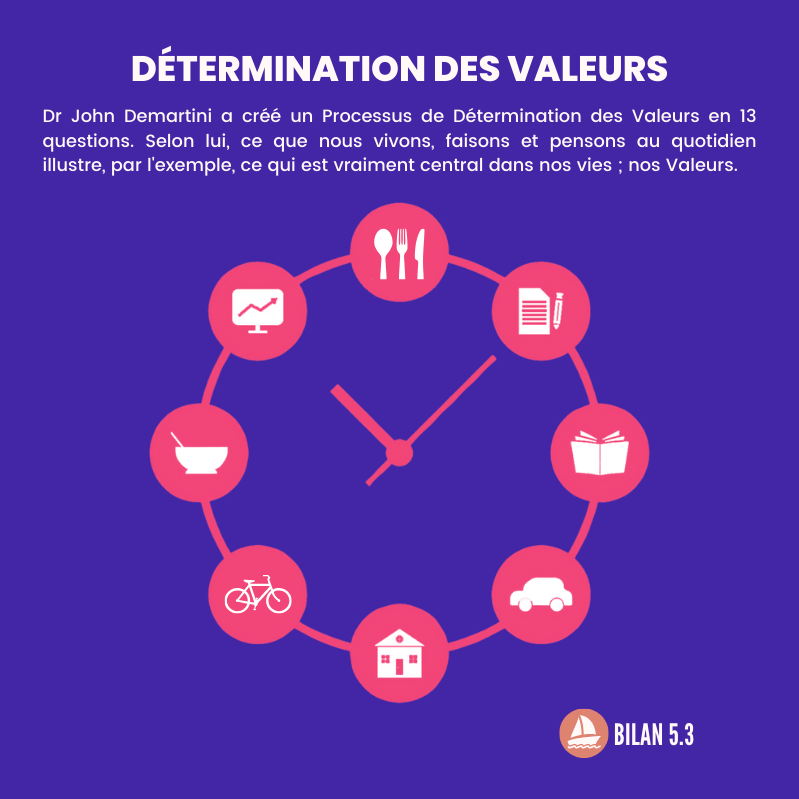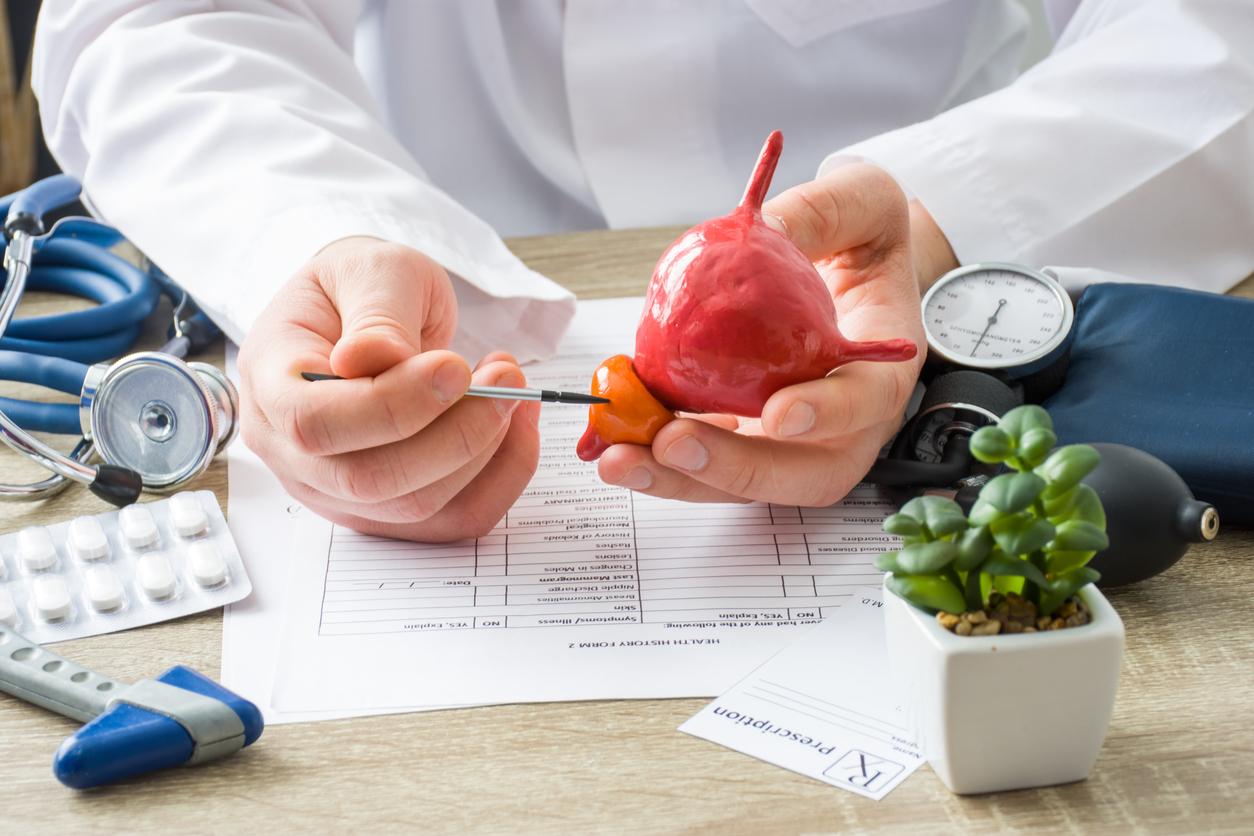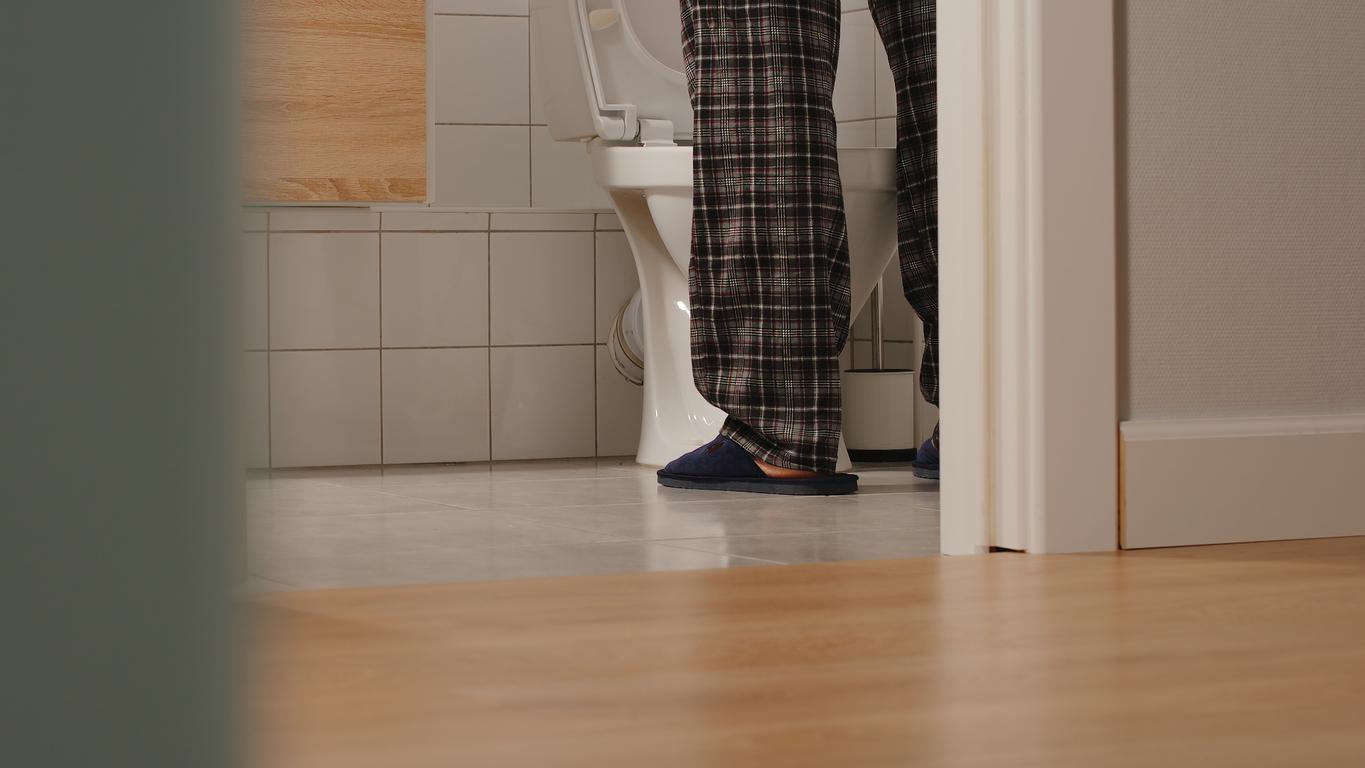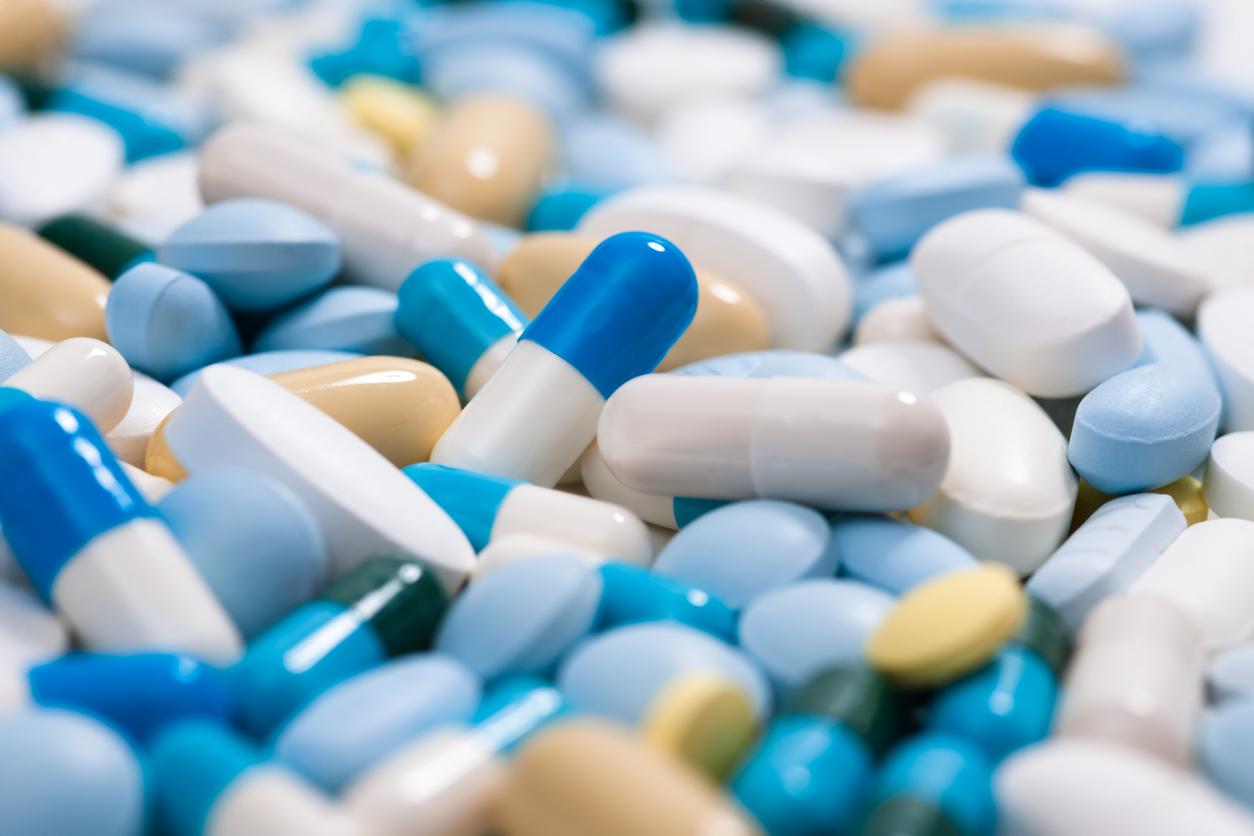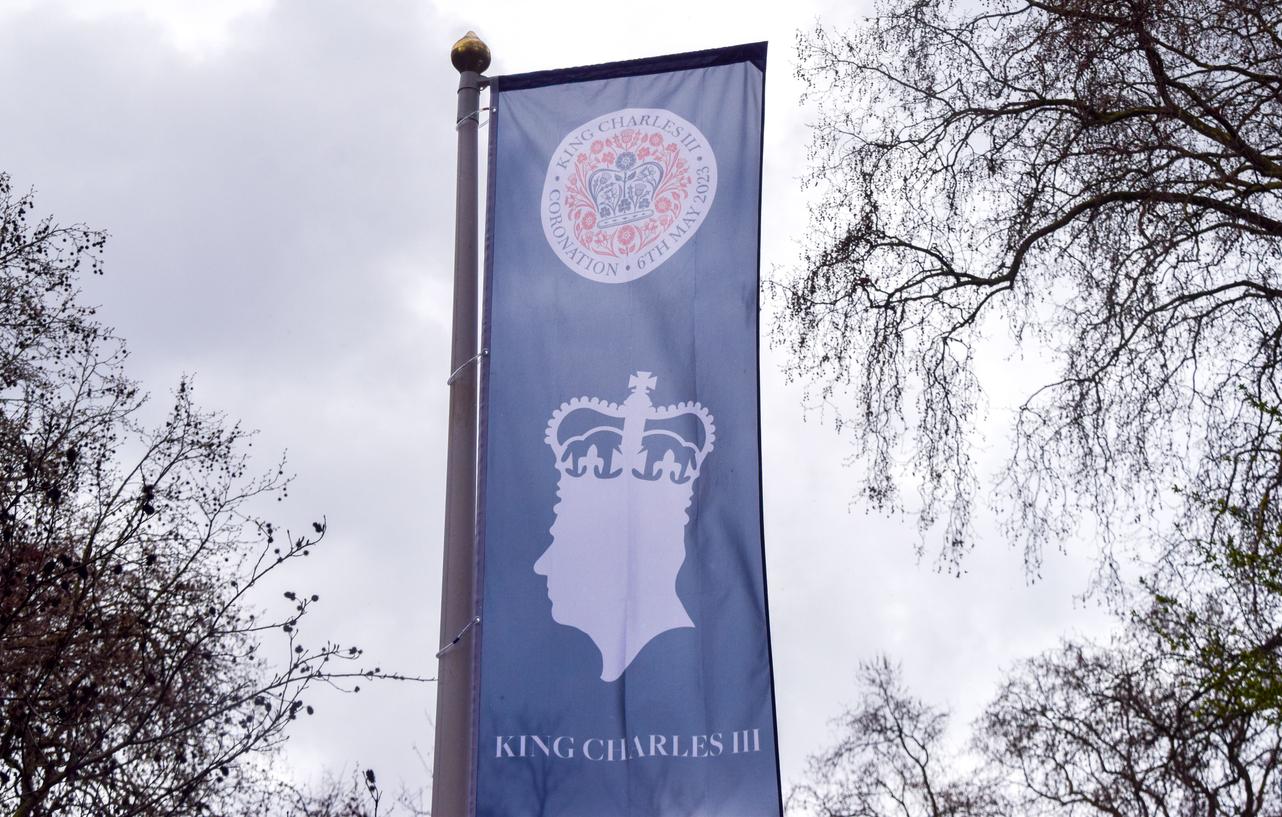
How can I keep making love?
Most men over the age of 45 will have problems with their prostate sooner or later. Peeing is more difficult, but making love can also be more difficult. How do you get rid of that? Bert-Jan de Boer – male doctor, medical sexologist and general practitioner – answers.
1. ‘What is the prostate for?’
“The prostate lies just below the bladder outlet and around the urethra, like an apple from which the core has been drilled. The function of this small organ is to produce prostate fluid for the transport of sperm cells. When ejaculating, the sperm cells in the prostate fluid come to outside. Many men only become aware of their prostate when complaints start to appear. For example, the urine stream becomes less powerful, but because the prostate is involved in the orgasm, sex can also become an obstacle.”
2. ‘Why is peeing more difficult?’
During the life course, the prostate grows, partly due to the influence of testosterone. This is a natural process that does not always cause complaints. But sometimes the prostate becomes so large that the urethra is squeezed shut. Then the urine can no longer pass through it. Bert-Jan de Boer: “First you get complaints such as: more difficult urination. Because the enlarged prostate also starts to irritate the bladder, some men have to urinate more often and get out of bed several times during the night.” In the worst case scenario, a catheter must be used in the case of benign prostate enlargement to empty the bladder.” To prevent this, we can give medication,” says De Boer. “For example, medicines that relax the pelvic floor. That gives just a little more space.”
3. ‘I have pain near the prostate. What could that be?’
With prostate pain you feel pain between the scrotum and rectum. The pain can radiate. Usually there is also lower back pain. Sometimes the pain comes on before or after ejaculation or when urinating. Bert-Jan de Boer: “We always first check whether there is a prostatitis caused by a bacterium; that occurs regularly and can be treated well with antibiotics. Men often have urinary problems.” But often the pain is harmless. In that case, the prostate is not inflamed, but it is irritated or swollen, for example due to excessive muscle tension in the pelvic floor muscles or irritation of the bladder. Tip from De Boer: “It is good to hold your pee every now and then, that way you train the bladder. But don’t wait until you are about to burst. The bladder then stretches too much and in the long run can no longer give good pressure when you pee.”
4. ‘Do my prostate symptoms indicate prostate cancer?’
That chance is small, for the simple reason that prostate cancer gives little or no symptoms in the beginning. In prostate cancer, the tumor usually starts on the outside of the prostate. As a result, the tumor does not cause a reduced jet power when urinating until late in the disease, or even never at all. Prostate cancer also almost never causes pain; this only happens after the cancer has spread. It is true that most men will develop prostate cancer at some point in their lives: research shows that the vast majority of all men aged 90 and older have cancer cells in their prostates. However, prostate cancer grows very slowly, reassures De Boer. “Most men will never have a problem with it: they usually end up dying with but not from prostate cancer.”
5. “Is it normal that as an older man you no longer feel like having sex?”
With aging, the testosterone level in the body decreases. Low testosterone levels reduce sex drive. Men who are deficient in testosterone often feel a bit lifeless and lack initiative. Having less energy, sleeping problems, reduced enthusiasm, loss of nighttime erections, sweating and even depression: it can all occur when testosterone levels are too low, says Bert-Jan de Boer. “The sexual energy is gone. These men are often prescribed antidepressants on a regular basis, when they actually need testosterone.” A testosterone deficiency can be easily detected with blood tests. The treatment is also simple, says De Boer: “Two pumps of testosterone gel daily on the shoulders, until the body produces it again.”
6. “What is ‘a dry orgasm’?”
When a man ejaculates, the bladder valve normally closes off the bladder and the semen exits through the urethra. After prostate surgery or due to medication, you may have a dry ejaculation. There is a sexual discharge, but no fluid comes out of the penis. De Boer: “Many men do not know that and think: now there is really something wrong with me. That is not the case. Medically speaking, it is not a problem. You only come dry. The semen dissolves in the urine and you pee that unnoticeable.”
7. ‘I have erection problems, is that because of the prostate?’
Half of men over the age of 60 have problems getting or maintaining an erection. “It is certainly not something you should be ashamed of,” says Bert-Jan de Boer. “It is part of aging. The quality of the blood vessels decreases and the nerves also start to work less well.” Prostate inflammation can also be of influence. But don’t forget about being overweight, smoking, high cholesterol and high blood pressure, because these increase the risk of erection problems considerably. A medical sexologist can determine the cause of the erection problem and initiate appropriate treatment.
8. ‘Does stress influence prostate complaints?’
“Yes. Some people get tension headaches when stressed. For example, the prostate, bladder, urethra and epididymis can also become irritated during stress and cause pain. Often there is nothing wrong with the bladder or prostate itself. But the complaints can occur more often in men who have had prostatitis before, so the area remains somewhat sensitive.” De Boer knows that there may also be an overstrain of the pelvic floor muscles. A pelvic therapist can precisely measure the tension of the pelvic floor muscles through the anus and help you relax. You can do exercises for this, such as tightening (‘holding stool’) and relaxing the anus again.
9. ‘I would like erection pills, but aren’t they bad for my heart?’
There are several prescription erection drugs available in the Netherlands: sildenafil (brand name Viagra), vardenafil (Levitra), tadalafil (Cialis) and avanafil (Spedra). Only in specific situations should you not use erection pills. This applies, for example, if you use long-acting nitrates every day. These are pills or sprays for under the tongue – nitroglycerin is a well-known example – that widen the blood vessels and provide relief from chest pain. Even if your blood pressure is very low, doctors advise against erection pills. Still, it is generally a safe drug, says Bert-Jan de Boer. A good rule of thumb is: can you climb two ten-step flights of stairs without chest pain? Then it is usually safe to use an erection pill.
10. ‘Is blood in the semen a cause for concern?’
Sometimes there is some blood in the semen. That can be a bit of a shock, but it’s almost always harmless. For example, a blood vessel may have burst during sex. An inflammation, abscess or cancer is almost never the cause. If it only happens once, you don’t have to go to the doctor. “If it occurs more often, it is advisable to consult a doctor,” says Bert-Jan de Boer. “If we can’t find anything – which is usually the case – we recommend ‘prostate rest’.” In other words, no sex. Self-satisfaction is then also gone for a while.
11. “How can I keep my relationship good if the sex is less?”
Erection problems sometimes cause intimacy to disappear. That is a real shame, says Bert-Jan de Boer. “It is important to maintain the intimacy and physicality. Lie down a nice spoonful against each other, or massage each other. And don’t focus on the genitals, because performance anxiety is especially common in men. The more fear of failure, the greater it is.” becomes a problem.” What many men don’t know, says De Boer, is that relaxation is the magic word. “An erection is not the contraction of muscles but the relaxation of muscles. All day long the smooth muscle tissue of the cavernous bodies of the penis is actively compressed. When you get an erection, the muscles relax and the cavernous bodies fill with blood. Then do you have an erection. Men have the idea: for an erection I have to do something. No, you have to leave something for it.”
This article will also appear in Plus Magazine September 2018. Not yet a Plus Magazine subscriber? Becoming a subscriber is done in no time!
Sources):
- Plus Magazine











